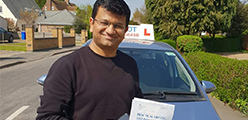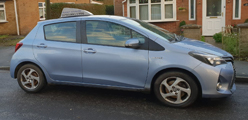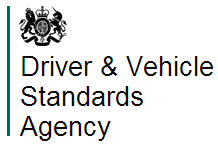Driving Lessons

How to get the most out of your lessons
Driving lessons should provide you with structured tuition-this means building your knowledge of driving in stages which lead on logically from each other. Your instructor will explain everything to you in a clear and logical way, and will be prepared to demonstrate any manoeuvre or aspect of driving. If you are unclear about any thing he will explain it to you again, in more detail or in a different way if necessary. Even if a question seems trival do not be afraid to ask! We use the latest techniques Ie coaching and client centred learning, involving the client in the learning process.
Record of progress
The main aims of your driving lesson are:
- To ensure that you are a safe and competent driver, and
- That you pass your driving test.
Your instructor should outline the targets for each lesson. This ensures that you know what you will be doing in that lesson;at the end of which your instructor will evaluate your progress, and inform you of the content of the next lesson.
You will be given an appointment card which will tell you when your next lessons will be. Keep this card safe and bring it along with you to all of your lessons.
To summarise:
- At the start of the lesson you should know which driving tasks you will be covering.
- As the lesson progresses you will be corrected as necessary, either on the move or parked at the side of the road.
- At the end of the lesson you should be informed of your progress and improvement, and what the next lesson will consist of. You will be advised as to what to read to prepare yourself for it.
Saving time (and money)
- On the very first lesson your instructor will check that your eye sight is to the required standard, and that you have a correct valid signed driving licence. If you have not previously paid for the lesson you will generally pay at the start of the lesson. It will save your time(and money) if you have your fee ready-with the correct change if possible.
- We prefer cash if possible if paying by cheque have it already written out to S pearson.
- Our terms of business are explained on the appointment cards and also in this document.
- Most driving schools ask for 48 hours notice for cancelling a lesson or you will have to forfeit the fee. We ask only 24 hours.
Quiet wide roads
Initially your instructor will drive you to a suitable area to start your driving. If possible this will be on quiet wide road with a minimum of traffic or parked cars.
When you arrive at the designated area you will swap seats and your instructor will tell you what the lesson will consist of. At the end of the lesson sufficient time will be allowed to drive you back to the pick up point.
Practise with family and friends...
Very often pupils will ask...Is it a good thing to practise with friends or relatives?
Before you do this there are a few points to bear in mind...
The car you use to practise in will not have dual controls, therefore it is vital that you can safely control the car, you should be able to correctly steer and position the car so that you and other road users are safe : safety must always be your first consideration.
Although friends and relatives will be very well meaning they will not have had the training or experience that an approved driving instructor will have. For this reason it is advisable to only practise what your instructor has taught you, and accept his teaching as being correct and safe; after all he is teaching it all day long and has passed rigorous exams to qualify!
The errors you make as a learner driver will have been, and will continue to be, made many times by other learner drivers. instructors are able to recognise , asses and rectify such faults. Friends and relatives may not recognise errors or may wrongly identify them.
Uncorrected errors not rectified at an early stage will cause problems by recurring at later stages; the longer the fault is left uncorrected or not identified the more difficult it will be to correct later on.
But my dad says...
Sometimes the advice and help you receive from friends or relatives will seem to conflict with what your instructor has told you. This is because since they have passed their driving test, friends or relatives will have forgotten, or perhaps have not been taught, the safe and correct procedures for varying traffic situations. Also, being realistic, it is unlikely that they will be driving by the book and may have even developed 'individual' driving styles! Because of this it is unlikely that they will be able to explain precisely and logically a given driving task. Also just because someone may be a good driver it does not necessary follow that they will be a good teacher!
How many lessons will I need?
One questions that is asked very frequently by pupils is `How many lessons will I need?`
The answer to this depends primarily on the following factors:
- How quickly you learn
- How much practise you get
- How much preparation you do
Age is an important factor when learning to drive. It is generally true that the younger you are the more quickly you will learn a new skill, including driving. A very rough guide is that it will take you 1-1.5 hours for each hour of your life; so if you're 17 it could take 17-25 hours. The national average is between 30 to 40 hours per pupil.
The increased volume of traffic and higher standards expected as well as the parallel parking and bay parking exercises and the independant driving having been added to the driving test all contribute to the test being harder to pass. The highway code is no longer at the end of the driving test.
The new theory test covers that aspect as well as a new hazard awareness section. The theory has 35 questions at the moment but will change to 50 in September 2007, you also get 2 questions at the start of your practical driving test.
Your instructor, with experience of teaching of all ages, will be the best person to advise you on this. Do not ever think that someone is to old age is no barrier! It will take longer but perseverance will mean eventual success.
Six lessons and passed first time...
Everybody learns at there own pace so don't feel pressured into thinking you should be ready for your own test after a specific period of time or number of lessons.
You may hear of people who`...only had 6 lessons and passed first time. `However, they may have forgotten to mention the fact that they have been out practising every evening for 6 months, or didn't reveal the fact that they had already taken one test but ...it doesn't count really because I wasn't ready for it...
There are numerous stories and myths about the test-don't believe all you hear-check with your driving instructor; he will have heard of most of the stories and can let you know what is fact and what is fiction!
Time of day/month/year...
When you take driving lessons you will sometimes feel you have done very well and at other times feel like giving up! Do not worry about this. We all have good days and bad days and there are various factors to take into consideration:
- Physical and Mental Well Being
- Worries at Home/Work
- Attitude / Frame of Mind
So, when planning your lessons try to ensure that you select times when you will not be to tired or to rushed. If possible allow yourself time to relax before lessons and give some thought to what you have done on previous lessons and what you will be doing on the forthcoming one. If you just rush into a lesson without adequate preparation you will find that you spend the whole lesson catching up with yourself.
Sensible driving shoes...
To get the most out of your driving lessons the following points may be helpful:
- Before your lesson read the pages of the driving manual relevant to the driving tasks that you will be covering.
- Try to relax and think about what you will be doing. Imagine you are sitting in the car and go through the various actions in your mind.
- Prepare any notes or questions you may have.
- Make sure you have the correct footwear (flat or low heeled-thin soled shoes), either wear them or have them with you to change into in the car.
- Also wear clothing that will not get in the way of operating any controls.
- Avoid wide loose sleeves which could catch on indicator stalks or on the gear lever.
- If you have long hair make shure it is kept off your face.
- When driving you need to keep both hands on the wheel-not brushing hair out of your eyes.
- Immediately after the lesson, whilst it is still fresh in your mind, go over it and think about ways in which your driving could be improved.
Previous experience...
If you have been, or still are , a cyclist, moped rider or motor cyclist, this will have given you a good grounding in`road sense` and you will be used to being on the road amongst traffic. Also if you play racquet sports(squash, tennis, etc.) This can improve your eye to hand co-ordination, something which plays an important part in making judgements when driving.
Keyboard playing can help-again the eye to hand co-ordination (with foot pedals on some pianos)it will help a learner to carry out different tasks at the same time. However, if none of the above applies to you, do not worry; and, if you are a cycling piano-playing squash player, do not automatically expect that you will be an expert driver! It may just help...
Advice from your instructor
Listen carefully to the advice given by your professional instructor.
Driving lessons cost
£40.00* per hour.
* The prices listed above are correct as of
15th September 2022 but are subject to change.
driving lesson now
Driving Test Success

Take a look at some of the students who have passed their driving test with Chariot School of Motoring.
If you prefer, you can learn to drive in our automatic car...
 Book your first
Book your first driving lesson now
Doing my driving lessons and my pass plus with Chariot Motoring School was a great experience. I was extremely nervous bu Steve calmed my nerves and constantly boosted my confidence. Always reassuring that I could do it and then when I passed first time it was proven. Overall brilliant experience and couldn't of dreamt for a better instructor!
Rachel, Fosdyke





